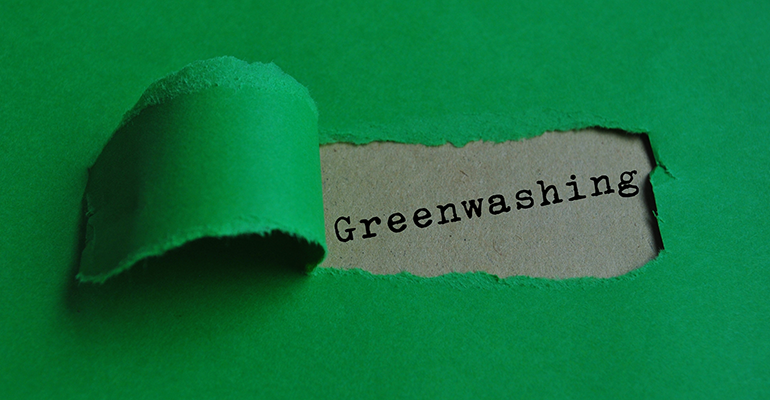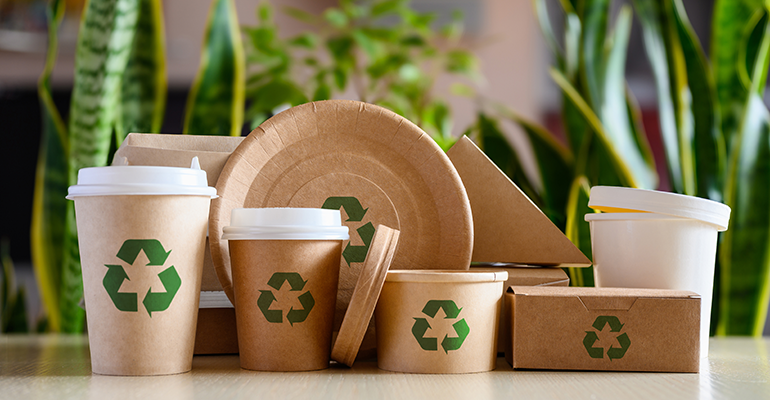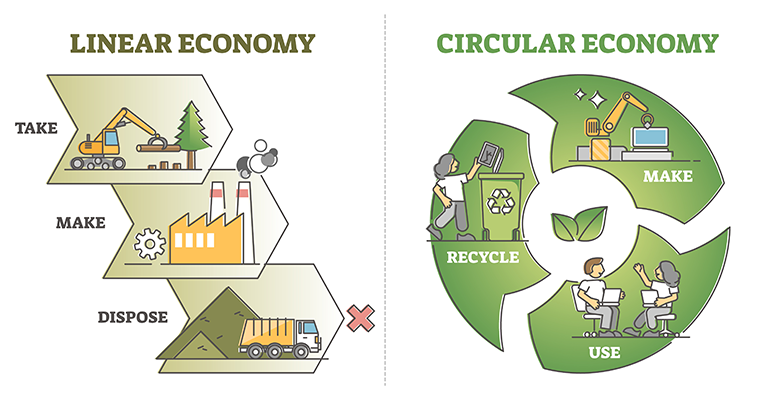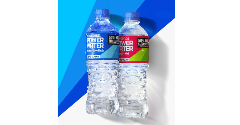News
Absolut Vodka’s (plastic lined) paper bottle sparks greenwashing accusations
21 Jun 2023
Social media users have called out Absolut Vodka over greenwashing following its trial of a single-mould paper bottle that contains an integrated barrier of recyclable plastic.
The bottle, developed in conjunction with paper bottle firm Paboco, represents the first time such a product has been sold commercially in-store by a global spirits company. Absolut Vodka launched a three-month trial in Tesco stores across Manchester, UK at the start of June.

But not everyone is happy with the self-proclaimed "significant milestone" in the firm’s journey to create a fully bio-based bottle.
“It's like calling a ham sandwich vegan, as 57% is bread,” said Paul Foulkes-Arellano, in a recent LinkedIn post. Foulkes-Arellano is founder of Circuthon Consulting, UK-based management consultancy that aids businesses in the transition to a circular economy model.
“The vodka is in contact with a polyethylene naphthalate (poly(ethylene 2,6-naphthalate) bottle which is 43% by volume of the bottle.
“PEN (as it's known colloquially) is a polyester derived from naphthalene-2,6-dicarboxylic acid, and ethylene glycol,” he added.
In response to the controversy, Elin Furelid, director Future Packaging at Absolut, said: "We are all learning from one another and there is no perfect solution yet on the market.
“In our case we are using a specific technique with Paboco. The benefit of our single-mould paper bottles is that they require no post-assembly.
“[This] reduces the amount of energy and material required during the production process – it is the paper that holds up as a bottle, rather than the inner lining.”
Greenwashing in the food, cosmetics, and fashion industry
Greenwashing is the practice of making untrue or misleading statements about a company’s environmental credentials, either unintentionally or as a measured marketing strategy.
The approach has gathered momentum, particularly in the food, cosmetics, and fashion industry, where there is a greater emphasis on sustainability and pressure to enter the circular economy.
In a recent report, commissioned by Changing Markets Foundation (CMF), claims over the environmental credentials of packaging, particularly paper-based, are misleading and done to obscure the real impact from consumers.
 © AdobeStock/Nikita
© AdobeStock/Nikita
It identifies the eco-friendly claims of Perfetti Van Melle and its new cardboard box packaging as an example. The report also highlights the makers of Mentos mints’ failure to mention the packaging is an unrecyclable composite material made out of card, aluminium and plastic.
The analysis, which is available on CMF’s website greenwash.com, also highlights the paper-based packaging for Balisto chocolate bars, made by Mars Wrigley, together with Edeka Minden-Hannover.
According to the report, the packaging is advertised as 90% paper and recyclable, but also contains a “thin barrier coating” which protects the chocolate and prevents it from being greased outwards.
The report states it is not clear what the thin barrier is made from and whether it can truly be recycled as the logo is not an official recycling one.
EU and UK greenwashing regulation on the cards
But whether or not firms are knowingly involved in greenwashing, regulation is fast catching up to meet the Environmental Social Governance (ESG) claims made by companies keen to be seen doing their bit for the environment.
Already being proposed is an EU directive for 2024 that looks to filter out unsubstantiated label claims that can mislead consumers of an organisation’s environmental impacts or benefits.
Currently in a draft form, the European Commission’s Green Claims Directive is expected to cover common themes such as the clarity of claims, ensuring they are not misleading and backed with evidence.
 Pictured: Diagram outlining linear vs circular economy comparison from recycling aspect | © AdobeStock/VectorMine
Pictured: Diagram outlining linear vs circular economy comparison from recycling aspect | © AdobeStock/VectorMine
Meanwhile, UK-based firms have been informed that the Competition and Markets Authority is already enforcing its own Green Claims Code with the news in January 2023 that it would further scrutinise household products, including food and beverages.
“The more businesses are transparent about their plans to transition to net zero and prepare for climate shocks, the easier it is to benchmark best practice, set standards and celebrate the companies that really are delivering on their commitments,” said Emma Howard Boyd, Chair of the UK’s Environment Agency.
“As with the government’s ambition for net zero by 2050, delivering on climate resilience and nature recovery requires robust, consistent, and trusted data,” she said in a speech to the UK Centre for Greening Finance and Investment Annual Forum at The Institution of Civil Engineers in July 2022.
“If we fail to identify and address greenwashing, we allow ourselves false confidence that we are already addressing the causes and treating the symptoms of the climate crisis.”
Related news

Oat Barista: Innovation for game-changing beverages
20 Nov 2025
Oat Barista is a clean label, sustainable, and innovative drink base specifically designed to create the perfect foam in one single ingredient.
Read more
How younger consumers are redefining ingredient choices and rejecting brand loyalty
18 Nov 2025
Gen Z and millennial consumers’ preferences for transparency, functionality, and purpose are “redefining the very nature of consumption itself”, says SPINS.
Read more
Hybrid formats and flexible positioning to disrupt category norms in 2026
17 Nov 2025
Trend forecasters expect food and drink to move more fluidly across occasions, functions, and formats as consumers seek versatility, novelty, and convenience.
Read more
Danone highlights digestive health as potential ‘tipping point’ for food industry
13 Nov 2025
Danone is betting on a food industry “tipping point” that will bloat the market for healthy products, particularly those related to gut health.
Read more
New UPF standard hoped to offer consumers ‘coherence and clarity’
10 Nov 2025
Ingredients companies are being urged to enter “a new era of partnership and innovation” following the launch of the industry’s first non-UPF verification scheme.
Read more
Faravelli at Fi Europe: Showcasing FARA® functional solutions for food and nutra
28 Oct 2025
At Fi Europe 2025 in Paris (stand 72M39), Faravelli showcases FARA® Customized Functional Solutions and a wide ingredient portfolio for food and nutra – delivering quality, innovation, and expertise.
Read more
Agrigum Redefined FIBER
27 Oct 2025
Agrigum has transformed gum acacia into a natural, science-backed fibre that supports gut health, sustainability, and innovation across global food and nutrition applications.
Read more
Expanding boundaries in food & beverage innovation
23 Oct 2025
IMCD and FrieslandCampina Professional expand partnership to deliver Kievit® across EMEA, enabling brands to enhance quality and accelerate time-to-market for tomorrow’s food & beverage creations.
Read more
Amazon Grocery launch aims to balance quality with affordability
22 Oct 2025
Global e-commerce giant Amazon has introduced a new private-label food brand, combining existing Amazon Fresh and Happy Belly products with new everyday items.
Read more
Powerade enters hydration space with launch of Power Water
21 Oct 2025
Coca-Cola’s Powerade brand has launched a zero-sugar, electrolyte-enhanced functional water, marking the brand's entry into the hydration space.
Read more